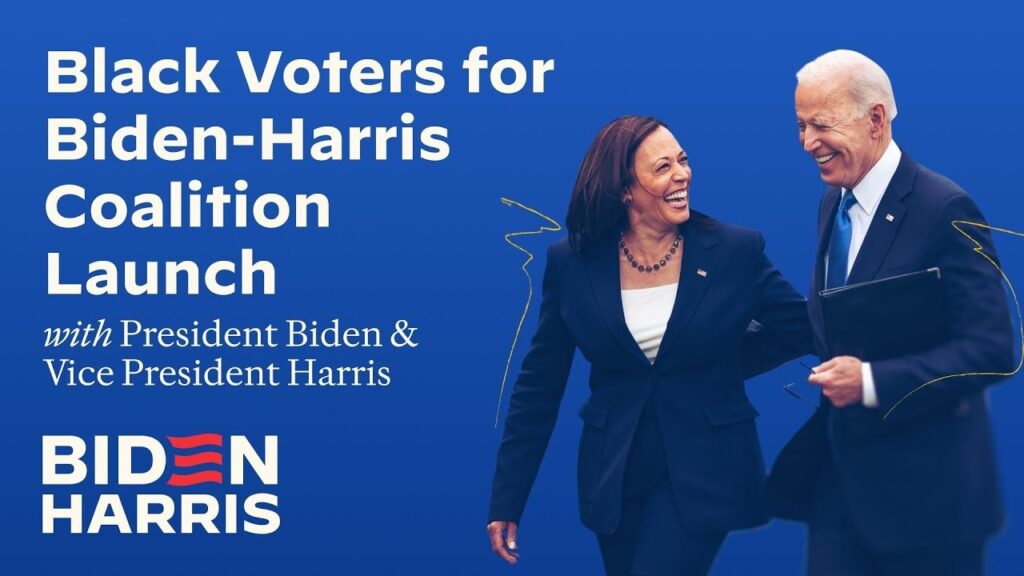By Stacy M. Brown
NNPA Senior National
Correspondent
As President Joe Biden and Vice President Kamala Harris ramp up their 2024 re-election campaign, concerns are mounting among prominent Black Democrats and operatives regarding the administration’s communication efforts with Black voters. Despite significant policy achievements, there’s a growing sentiment that the campaign hasn’t effectively conveyed these accomplishments to the Black community.
The National Newspaper Publishers Association (NNPA) and Roland Martin Unfiltered, two major Black-owned media entities, weren’t formally notified of the campaign’s recent Black voter outreach kickoff. The oversight has intensified criticism that the Biden campaign fails to engage adequately with influential Black media.
Martin, a prominent Black-media mogul, expressed his frustration on his show, stating, “The Biden-Harris campaign must get Black people off the couch.” He emphasized that many Black-owned outlets, including his Black Star Network, could have helped boost the event, reflecting a broader disconnection issue.
The campaign has agreed to sponsor the NNPA’s upcoming national convention, and Biden and Harris have received formal invitations to address the Black community at the event through the NNPA. The NNPA is the trade association of the 197-year-old Black Press of America, which includes more than 250 Black-owned news publications and media outlets employing dozens of Black journalists nationwide.

Rep. Steven Horsford (D-Nev.), chair of the Congressional Black Caucus, echoed these concerns, highlighting a “level of disconnection earlier on the message, on the messengers and on mobilization.” He told Politico that he directly addressed these issues with the campaign. Similarly, Rep. Jasmine Crockett (D-Texas) noted the challenges posed by a fragmented media landscape, noting, “I think that the way that we communicate has changed in such a way that, if you don’t invest earlier, it’s going to be a problem.”
Politico reported that private conversations among Democratic operatives reveal deeper fears, including the notion that Black influencers and media personalities have grown disenchanted with Biden. Moreover, there is apprehension that Biden’s limited public engagements and scripted appearances make him less accessible to voters.
While surveys indicate Black voters support Biden’s policies, such as student debt relief and funding for HBCUs, many remain unaware of these achievements due to the campaign’s communication gaps, which are particularly concerning in battleground states like Georgia, North Carolina, and Pennsylvania, where even a slight dip in Black voter support could be decisive.
Adrianne Shropshire, executive director of BlackPAC, emphasized to the outlet the importance of informing working-class Black voters about Biden’s accomplishments. “When you tell people ‘Here’s what the Biden administration has done,’ particularly related to issues the Black communities care about, people are really surprised,” she said.
“If they are watching Joy Reid, they know Biden’s accomplishments,” said Cornell Belcher, who has conducted focus groups for BlackPAC. “If they are spending time in the Shade Room or a dozen other social media news sites, [they] never hear that Biden used an executive order to ban chokeholds in federal office.”
Polling and focus groups indicate a declining enthusiasm among young Black voters and Black men. One prominent poll found that only 41 percent of Black Americans ages 18 to 39 are sure to vote this year, down from 61 percent in June 2020.
Despite those challenges, a senior Biden campaign official acknowledged the need to improve awareness of Biden’s accomplishments among Black voters. “If it was the flip side or the inverse and every Black person across the country knew everything that Joe Biden and Kamala Harris had done for their lives, we wouldn’t need to advertise [with] paid media,” the official said.
The campaign has recently invested in Black media, including new television and radio ads, meetings with key Black community leaders, and interviews with Black journalists. However, some Black operatives argue that these efforts are not reaching the broader, non-college-educated Black electorate, mainly because most of this is with Black-targeted outlets instead of a robust investment in Black-owned media.
“Talking to Black men at Morehouse, talking to Black men who own businesses—you’re not talking to the majority of brothers who are sitting out elections,” W. Mondale Robinson, founder of the Black Male Voter Project, told Politico.
With time running out, the Biden campaign faces a critical challenge in re-engaging and mobilizing Black voters. As Cornell Belcher warned, “They have a shorter runway than they think,” and the campaign’s ability to bridge the information gap and address the concerns of Black voters will be pivotal in securing a victory in the 2024 election.




